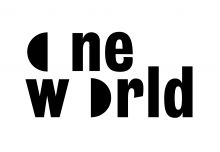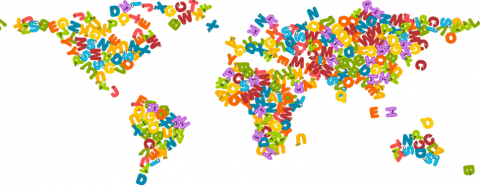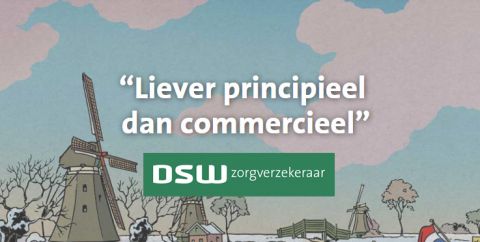It is important for people to think critically so that they can make good choices. People often don't realize how irrational some of the decisions they make are. Critical thinking is thinking that criticizes. Critical thinking is to evaluate something against a certain standard. One of the most important things anyone can criticize is reasoning. Reasoning comes into play when people:
- Form an opinion.
- Make a judgment.
- Come to a decision.
- Develop plans.
- Propose hypotheses, etc.
Logic is used to determine whether a statement is true, whether the reasoning is correct, and whether we can draw a connection. In this case, it is not about making up statements, but about evaluating (the correctness of) statements that have been made in order to ultimately form the correct conclusions.
To achieve this, people evaluate their thinking on the basis of rationality. When they understand how to think critically, they can use this knowledge to be critical of multiple topics that are important in everyday life. It is also important to remember that criticizing other people's ideas does not mean that they are attacked, but that the logic is sought in something. In addition, criticizing someone is not always an example of critical thinking. One can criticize without thinking about it.
When someone comes to a conclusion, they have a belief. A belief is propositional. That means it is either true or false. A belief is the same as a judgment and an opinion. When a belief is used in an explanatory sense, it produces an assertion as a result. Claims can be considered critically.
A distinction must be made between objective claims and subjective judgments. An objective claim has the following characteristic: whether something is true or false is independent of a person's belief as to whether it is true or false. Objective claims are true or false, but this is not always known. A subjective judgment, on the other hand, is not independent of whether someone thinks it is true or false. Many statements contain both objective and non-objective elements.
A subjective judgment is always true. For this reason, it does not make sense to label subjective judgments in terms of probability. In addition, it cannot be seen as something that can be supported by evidence. Evidence is something that increases the likelihood of an assertion. Many objective claims cannot be supported with evidence either.
Some opinions are not subjective judgments because their truth or falsehood is independent of what people think is true or false. Objective opinions can also be called factual opinions. However, this does not mean that factual opinions are always true.
Relativism is the idea that the "truth" of things is related to culture.
Moral subjectivism takes as its starting point that the moral assessment of something as right or wrong is entirely subjective.
Issues are questions. One issue is whether a statement is true or false. Some issues are objective and some are subjective. The first thing that comes with critical thinking is determining what the issue actually is. Sometimes it is difficult to determine exactly what the claim is (and what the associated issue is). This could be because someone is using difficult terms or someone is deliberately not wanting to clarify his or her claim.
An argument is a reason presented to prove that a statement is true. A statement that is used as a reason to prove that another statement is true is called a premise. The statement that a premise provides evidence for is called the conclusion of an argument.
Whether an argument is good depends on whether a premise actually supports the conclusion of the argument. This is only possible if the premise is true. A second criterion is therefore that the premise must be relevant to the conclusion. This means that the premise must be related to the conclusion in such a way that the premise increases the chance that the conclusion is correct. It's important to remember that sometimes it may seem like someone is making an argument when they aren't. An argument is not a summary of facts. You can recognize an argument if it is used to prove or support a claim.
Belief formation is also influenced by unconscious features of human psychology, so-called cognitive biases. These biases influence the way information is processed. A few of these biases are:
- Belief bias: This is the tendency to judge reasoning based on the credibility of the conclusion. When an illogical argument is followed by a credible conclusion, people are more likely to believe it than a logical argument with a conclusion that seems implausible.
- Confirmation bias: This is the tendency to put more weight on evidence that supports our own ideas.
- Heuristics: These are general rules that we unconsciously use when estimating probabilities. An example is the availability heuristic. In this case, the probability that something will happen is unconsciously based on data that is best available in memory. As a result, the probability is often overestimated or underestimated. This probably also explains how easily it is to make the mistake of generalizing based on an anecdote. The availability heuristic is also related to the false consensus effect. This concerns the tendency to assume that our attitudes and the attitudes in the environment are shared by the larger society.
- Bandwagon effect: this is the tendency to attune one's own thinking to what others (seem to) think.
- Negativity bias: people are more sensitive to negative information than positive information and remember it faster. This bias also plays a role in loss aversion, where people are more focused on avoiding loss than gaining profit.
- In-group bias: this is the tendency to perceive the members who do not belong to the own group (out-group) as different and wrong, and the members of the own group (in-group) as good and correct.
- Fundamental Attribution Error: T his is the tendency to attribute behavior directly to a person's personality, without regard to context and situation.
- Obedience to Authority: This is the tendency for people to blindly obey the commands of the authority.
- Overconfidence Effect: This is self-deception. For example, if someone estimates the percentage of their correct answers on a topic, the estimate will likely be on the high side - at least if the questions are difficult or the topic is unknown.
- Better-than-average illusion: The tendency for people to judge themselves better than the average in some areas.
Critical thinking helps to spot substandard substantiation or cover up mistakes. It doesn't say what the truth is.





















